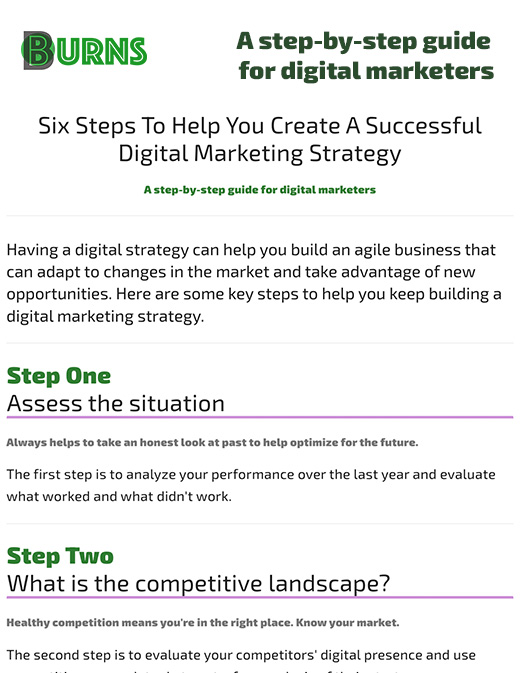Content Marketing Strategies: Ten Steps To Success
A step-by-step guide for content marketers
Content marketing strategies can be challenging to create, but with the right steps, they can be extremely successful. Here is a step-by-step guide to creating a successful strategy.
Step One
Define your goals
Setting goals is the first step in turning nothing into something.
Determine what you want to achieve with your content marketing strategy. This could be increasing brand awareness, generating leads, or driving sales.
Step Two
Identify your target audience
Create content that will be helpful, insightful, or interesting for your target audience.
Conduct research to understand your target audience's demographics, interests, and pain points.
Step Three
Conduct a content audit
Find out what the current story is.
Analyze your existing content to identify gaps and opportunities.
Step Four
Develop a content management system
Bring order to chaos, improve communications, and minimize overhead.
Establish a process for creating, publishing, and promoting your content.
Step Five
Choose your content types
Follow the trends of how your auience consumes information.
Determine the types of content that will resonate with your target audience, such as blog posts, videos, or infographics.
Step Six
Create a content calendar
An hour of planning can save you 10 hours of doing.
Plan your content in advance to ensure consistency and alignment with your goals.
Step Seven
Optimize your content for SEO
Improve the appearance and positioning of content in search results.
Use relevant keywords and meta descriptions to improve your content's visibility in search engines.
Step Eight
Promote your content
Increase visibility and effectiveness of your content.
Share your content on social media, email newsletters, and other channels to reach your target audience.
Step Nine
Measure your results
What gets measured gets optimized.
Use analytics tools to track your content's performance and adjust your strategy accordingly.
Step Ten
Continuously strive for excellence
Your mindset is everything. It determines your success or failure.
Regularly review and refine your content marketing strategy to ensure it remains effective and aligned with your goals.
A fresh, modern strategic approach
By following these steps, you can create a content marketing strategy that drives results and helps you achieve your business objectives. There also needs to be a complementary promotion plan that combines paid, owned, and earned media for every content plan.
read_more Bonus Guide
Tracking key performance indicators (KPIs) is essential to measure the success of a content marketing strategy. Here are some KPIs to track:
1. Organic website traffic: This measures the number of visitors who come to your website through search engines.
2. Session-to-contact rate: This measures the percentage of website visitors who become leads by filling out a contact form or taking another desired action.
3. Sales opportunities generated from inbound (SALs): This measures the number of sales opportunities generated from inbound marketing efforts.
4. Average length of sales cycle: This measures the time it takes for a lead to become a customer.
5. Increased social media interest: This measures the engagement and interest generated by your content on social media platforms.
6. Increased brand visibility: This measures the reach and visibility of your brand through your content marketing efforts.
7. Improved SEO ranking: This measures the improvement in your website's search engine ranking as a result of your content marketing efforts.
Evaluate the effectiveness of your content marketing strategy and make data-driven decisions to improve your performance.
